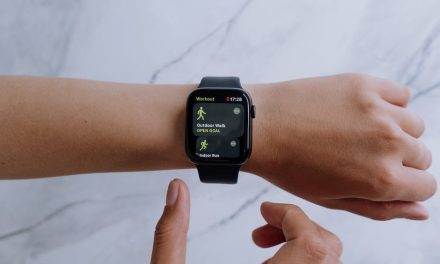Table of Contents
- Introduction
- Benefits of Implementing Performance Management Software for Millennials
- Key Features Millennials Look for in Performance Management Software
- How Performance Management Software Can Improve Millennials’ Job Satisfaction
- Challenges Millennials Face with Traditional Performance Management Systems
- Customization Options Millennials Prefer in Performance Management Software
- The Impact of Mobile Accessibility on Millennials’ Performance Management Experience
- Integrating Feedback and Recognition Features into Performance Management Software for Millennials
- Training and Support Strategies for Millennials Using Performance Management Software
- Q&A
- Conclusion
“Empower your team with performance management software designed for the modern workforce.”
Introduction
Millennials have different expectations when it comes to performance management software compared to previous generations. Understanding these expectations is crucial for organizations looking to attract and retain top talent. In this article, we will explore some key factors that millennials consider important in performance management software.
Benefits of Implementing Performance Management Software for Millennials
In today’s fast-paced and technology-driven world, millennials are becoming an increasingly important demographic in the workforce. As digital natives, they have grown up with technology at their fingertips and expect the same level of convenience and efficiency in the workplace. This includes their expectations for performance management software.
Performance management software is a valuable tool for organizations looking to streamline their processes and improve employee performance. For millennials, who value transparency, feedback, and continuous learning, performance management software can provide a platform for ongoing communication and development.
One of the key benefits of implementing performance management software for millennials is the ability to provide real-time feedback. Traditional performance reviews are often conducted annually or semi-annually, leaving employees feeling disconnected and unsure of where they stand. With performance management software, feedback can be given on a regular basis, allowing employees to track their progress and make adjustments as needed.
Additionally, performance management software can help to facilitate goal setting and tracking. Millennials are goal-oriented individuals who thrive on setting and achieving objectives. By using performance management software, employees can set goals, track their progress, and receive feedback on their performance. This can help to keep employees engaged and motivated, leading to increased productivity and job satisfaction.
Another benefit of performance management software for millennials is the ability to track and analyze performance data. Millennials are data-driven individuals who appreciate having access to information that can help them make informed decisions. Performance management software can provide valuable insights into employee performance, allowing managers to identify trends, strengths, and areas for improvement.
Furthermore, performance management software can help to foster a culture of continuous learning and development. Millennials value opportunities for growth and development in the workplace, and performance management software can provide a platform for ongoing training and feedback. By using performance management software, employees can access resources, training materials, and feedback to help them improve their skills and advance their careers.
Overall, implementing performance management software can have a positive impact on millennials in the workplace. By providing real-time feedback, facilitating goal setting and tracking, analyzing performance data, and fostering a culture of continuous learning and development, organizations can meet the expectations of this important demographic. Performance management software can help to improve employee engagement, productivity, and job satisfaction, leading to a more motivated and successful workforce.
Key Features Millennials Look for in Performance Management Software
Performance management software has become an essential tool for organizations looking to streamline their processes and improve employee performance. With the rise of the millennial workforce, it is crucial for companies to understand the expectations and preferences of this generation when it comes to performance management software.
Millennials, born between 1981 and 1996, have grown up in a digital age where technology plays a significant role in their daily lives. As such, they have high expectations when it comes to the software they use at work. When it comes to performance management software, there are several key features that millennials look for to ensure that it meets their needs and helps them succeed in their roles.
One of the most important features that millennials look for in performance management software is ease of use. Millennials are accustomed to using intuitive and user-friendly technology in their personal lives, and they expect the same from the software they use at work. Performance management software that is difficult to navigate or requires extensive training to use is likely to be met with resistance from millennials.
In addition to ease of use, millennials also value real-time feedback in performance management software. Traditional annual performance reviews are no longer sufficient for this generation, who crave continuous feedback and recognition for their work. Performance management software that allows for ongoing feedback and communication between managers and employees is highly valued by millennials.
Another key feature that millennials look for in performance management software is goal setting and tracking capabilities. Millennials are goal-oriented individuals who thrive on setting and achieving objectives in their work. Performance management software that allows employees to set goals, track their progress, and receive feedback on their performance towards those goals is essential for keeping millennials engaged and motivated.
Integration with other tools and platforms is also important to millennials when it comes to performance management software. Millennials are used to working with a variety of digital tools and platforms in their daily lives, and they expect their performance management software to seamlessly integrate with these other tools. Integration with tools such as project management software, communication platforms, and HR systems can help streamline processes and improve efficiency for millennials.
Finally, millennials value data and analytics in performance management software. This generation is data-driven and relies on analytics to make informed decisions in their work. Performance management software that provides detailed analytics on employee performance, goal progress, and overall team performance is highly valued by millennials. This data can help employees and managers identify areas for improvement, track progress towards goals, and make data-driven decisions to drive performance and success.
In conclusion, understanding millennials’ expectations for performance management software is crucial for organizations looking to attract and retain top talent from this generation. By incorporating key features such as ease of use, real-time feedback, goal setting and tracking capabilities, integration with other tools, and data and analytics, companies can ensure that their performance management software meets the needs and preferences of millennials. By investing in performance management software that aligns with the expectations of this generation, organizations can improve employee engagement, productivity, and overall performance in the workplace.
How Performance Management Software Can Improve Millennials’ Job Satisfaction

Millennials, those born between 1981 and 1996, are now the largest generation in the workforce. As this group continues to grow in numbers, it is essential for organizations to understand their expectations and preferences when it comes to performance management software. Millennials have unique characteristics and values that shape their attitudes towards work, including a desire for continuous feedback, recognition, and opportunities for growth and development.
One of the key expectations that millennials have for performance management software is the ability to provide real-time feedback. Traditional annual performance reviews are no longer effective for this generation, who value ongoing communication and feedback. Millennials want to know how they are performing on a regular basis so they can make adjustments and improvements as needed. Performance management software that allows for continuous feedback can help to keep millennials engaged and motivated in their work.
In addition to real-time feedback, millennials also value recognition for their contributions. They want to feel appreciated and acknowledged for their hard work and achievements. Performance management software that includes features for recognizing and rewarding employees can help to boost morale and job satisfaction among millennials. Whether it’s through peer-to-peer recognition, manager feedback, or rewards and incentives, millennials appreciate being recognized for their efforts.
Another important expectation that millennials have for performance management software is the ability to support their career development. Millennials are known for their desire to learn and grow in their careers, and they expect their employers to provide opportunities for development. Performance management software that includes tools for setting goals, tracking progress, and identifying areas for improvement can help millennials to take control of their own career development. By providing resources and support for growth, organizations can show millennials that they are invested in their long-term success.
Furthermore, millennials value transparency and fairness in the workplace. They want to understand how their performance is being evaluated and how it aligns with the organization’s goals and values. Performance management software that provides clear and consistent criteria for evaluation can help to build trust and credibility with millennials. By promoting transparency and fairness in performance management processes, organizations can create a more positive and inclusive work environment for millennials.
Overall, understanding millennials’ expectations for performance management software is crucial for organizations looking to attract, retain, and engage this generation in the workforce. By providing real-time feedback, recognition, career development opportunities, and transparency in performance management processes, organizations can meet the needs and preferences of millennials. Performance management software that aligns with these expectations can help to improve job satisfaction, engagement, and productivity among millennials, ultimately leading to a more successful and sustainable workforce.
Challenges Millennials Face with Traditional Performance Management Systems
Millennials, those born between 1981 and 1996, are now the largest generation in the workforce. As this group continues to grow in numbers, organizations are faced with the challenge of meeting their unique expectations and needs. One area where this is particularly evident is in performance management. Traditional performance management systems, which often involve annual reviews and ratings, are no longer meeting the needs of this tech-savvy and feedback-hungry generation.
One of the key challenges that millennials face with traditional performance management systems is the lack of real-time feedback. Millennials have grown up in a world where instant feedback is the norm, whether it’s through social media, online reviews, or messaging apps. They expect the same level of immediacy and transparency in the workplace. However, traditional performance management systems often only provide feedback once a year during the annual review process. This can leave millennials feeling disconnected and unsure of how they are performing on a day-to-day basis.
Another challenge that millennials face with traditional performance management systems is the lack of opportunities for development and growth. Millennials are known for their desire to continuously learn and grow in their careers. They want to be challenged and given opportunities to develop new skills. However, traditional performance management systems often focus on past performance rather than future potential. This can leave millennials feeling stagnant and unfulfilled in their roles.
Additionally, millennials value collaboration and teamwork in the workplace. Traditional performance management systems, which often focus on individual performance and competition, can be seen as counterproductive to this value. Millennials want to work in environments where they can collaborate with their colleagues, receive feedback from multiple sources, and work towards common goals. Traditional performance management systems can hinder this collaborative spirit by pitting employees against each other in a race for the highest ratings.
Furthermore, millennials are digital natives who are accustomed to using technology in every aspect of their lives. They expect the same level of convenience and efficiency in the workplace. Traditional performance management systems, which often involve manual processes and paperwork, can feel outdated and cumbersome to millennials. They want performance management software that is user-friendly, mobile-friendly, and integrates seamlessly with other tools and systems they use on a daily basis.
In conclusion, millennials face several challenges with traditional performance management systems. These systems often lack real-time feedback, opportunities for development and growth, a focus on collaboration, and the technological sophistication that millennials expect. Organizations that want to attract and retain top millennial talent must adapt their performance management systems to meet the expectations of this generation. By investing in modern performance management software that addresses these challenges, organizations can create a more engaged, motivated, and productive workforce.
Customization Options Millennials Prefer in Performance Management Software
Performance management software has become an essential tool for organizations looking to streamline their processes and improve employee performance. With the rise of the millennial workforce, there has been a shift in expectations when it comes to performance management software. Millennials, who are known for their tech-savvy nature and desire for customization, have specific preferences when it comes to the features and functionality of these tools.
One key aspect that millennials look for in performance management software is customization options. Millennials value the ability to tailor the software to meet their specific needs and preferences. This includes the ability to customize performance goals, feedback mechanisms, and reporting features. By allowing users to personalize the software to align with their individual goals and objectives, organizations can increase engagement and motivation among their millennial employees.
Another important customization option that millennials prefer in performance management software is the ability to track progress and performance in real-time. Millennials are used to instant feedback and constant communication in their personal lives, and they expect the same level of transparency and immediacy in the workplace. Real-time tracking allows employees to see how they are performing on a day-to-day basis, enabling them to make adjustments and improvements as needed.
In addition to real-time tracking, millennials also value the ability to set and track goals within the performance management software. This includes the ability to set both short-term and long-term goals, as well as track progress towards those goals over time. By providing employees with a clear roadmap for success and the tools to monitor their progress, organizations can empower their millennial workforce to take ownership of their development and performance.
Furthermore, millennials appreciate performance management software that offers a variety of feedback mechanisms. This includes the ability to receive feedback from managers, peers, and even customers. Millennials value diverse perspectives and input, and they see feedback as an opportunity for growth and improvement. By providing multiple channels for feedback within the software, organizations can create a culture of continuous learning and development among their millennial employees.
Lastly, millennials prefer performance management software that is user-friendly and intuitive. Millennials are accustomed to using technology in their daily lives, and they expect the software they use at work to be just as user-friendly as the apps and tools they use outside of the office. Intuitive design, clear navigation, and seamless integration with other systems are all important factors that millennials consider when evaluating performance management software.
In conclusion, customization options play a crucial role in meeting the expectations of millennials when it comes to performance management software. By providing millennials with the ability to customize the software to meet their specific needs, track progress in real-time, set and track goals, receive diverse feedback, and use user-friendly interfaces, organizations can create a more engaging and effective performance management process for their millennial workforce. Understanding and incorporating these preferences into the design and implementation of performance management software can help organizations attract, retain, and motivate their millennial employees in today’s competitive job market.
The Impact of Mobile Accessibility on Millennials’ Performance Management Experience
Millennials, those born between 1981 and 1996, have become the largest generation in the workforce. As digital natives, they have grown up with technology at their fingertips and have high expectations for the tools they use in the workplace. This includes performance management software, which plays a crucial role in helping employees set goals, track progress, and receive feedback on their work.
One key aspect that millennials value in performance management software is mobile accessibility. With the rise of remote work and flexible schedules, the ability to access performance management tools on the go has become essential. Millennials are used to having information at their fingertips, and they expect the same level of convenience and accessibility in the workplace.
Mobile accessibility allows millennials to stay connected and engaged with their performance goals, even when they are not in the office. Whether they are working from home, traveling for business, or simply on the go, having access to performance management software on their mobile devices enables them to stay on top of their goals and progress.
Furthermore, mobile accessibility also promotes real-time feedback and communication between employees and managers. Millennials value continuous feedback and coaching, and being able to access performance management tools on their mobile devices allows for more immediate and timely feedback. This can help employees address issues or make improvements in a timely manner, rather than waiting for a scheduled performance review.
In addition, mobile accessibility can also improve the overall user experience of performance management software for millennials. Being able to access the software on their preferred devices, whether it’s a smartphone or tablet, makes it more convenient and user-friendly. This can lead to increased engagement and adoption of the software, as millennials are more likely to use tools that are easy to access and use.
Overall, the impact of mobile accessibility on millennials’ performance management experience is significant. It allows them to stay connected and engaged with their goals, promotes real-time feedback and communication, and improves the overall user experience of the software. As more companies embrace remote work and flexible schedules, having performance management software that is mobile accessible will be essential in meeting the expectations of millennial employees.
In conclusion, understanding millennials’ expectations for performance management software is crucial for organizations looking to attract and retain top talent. Mobile accessibility is a key factor that can greatly impact millennials’ experience with performance management software. By providing tools that are accessible on mobile devices, companies can better engage and support their millennial employees in achieving their goals and driving performance. As the workforce continues to evolve, it is important for organizations to adapt and meet the changing expectations of their employees, particularly millennials who value technology and convenience in the workplace.
Integrating Feedback and Recognition Features into Performance Management Software for Millennials
Millennials, those born between 1981 and 1996, have become the largest generation in the workforce. As such, their expectations and preferences are shaping the way organizations approach various aspects of employee management, including performance management. One key area where millennials have distinct expectations is in the realm of performance management software.
Millennials are known for their desire for instant feedback and recognition. They have grown up in a world where technology allows for immediate communication and gratification, and they expect the same in the workplace. This has significant implications for performance management software, as traditional annual performance reviews are no longer sufficient for this generation.
To meet the expectations of millennials, organizations need to integrate feedback and recognition features into their performance management software. This means moving away from the once-a-year review model and towards a more continuous feedback loop. Millennials want to know how they are performing on a regular basis, not just once a year. By incorporating real-time feedback mechanisms into performance management software, organizations can provide millennials with the ongoing feedback they crave.
In addition to feedback, millennials also value recognition for their hard work and achievements. They want to feel appreciated and valued by their employers, and recognition is a key driver of employee engagement and motivation. Performance management software should include features that allow managers to easily recognize and reward employees for their contributions. This could take the form of badges, points, or other virtual rewards that can be given out in real-time.
By integrating feedback and recognition features into performance management software, organizations can create a more engaging and motivating work environment for millennials. This not only helps to improve employee satisfaction and retention but also drives performance and productivity.
Furthermore, performance management software should be user-friendly and intuitive for millennials. This generation has grown up with technology and expects software to be easy to use and navigate. Complex and clunky systems will only frustrate millennials and hinder their engagement with the software. Organizations should invest in user-friendly performance management software that is accessible on multiple devices and platforms.
Another important consideration for performance management software for millennials is the ability to set and track goals. Millennials are goal-oriented and value opportunities for growth and development. Performance management software should allow employees to set goals, track their progress, and receive feedback on their performance towards those goals. This helps to keep millennials motivated and focused on their personal and professional development.
In conclusion, understanding millennials’ expectations for performance management software is crucial for organizations looking to attract, engage, and retain top talent. By integrating feedback and recognition features, creating user-friendly interfaces, and enabling goal-setting and tracking capabilities, organizations can create a performance management system that meets the needs of this generation. Ultimately, investing in performance management software that aligns with millennials’ expectations will not only benefit employees but also drive organizational success in the long run.
Training and Support Strategies for Millennials Using Performance Management Software
In today’s fast-paced and technology-driven world, millennials are becoming an increasingly important demographic in the workforce. As digital natives, they have grown up with technology at their fingertips and expect the same level of convenience and efficiency in the workplace. This includes their expectations for performance management software, which plays a crucial role in helping them track their progress, set goals, and receive feedback from their managers.
One of the key expectations that millennials have for performance management software is ease of use. They want a platform that is intuitive and user-friendly, allowing them to navigate it without the need for extensive training or support. This is because millennials are used to using technology in their everyday lives and expect the same level of simplicity and convenience in the tools they use at work.
Another important expectation for millennials is real-time feedback. They want to receive timely and constructive feedback on their performance, rather than waiting for annual or semi-annual reviews. Performance management software that allows for continuous feedback and coaching can help millennials stay engaged and motivated, as they can see the impact of their efforts in real-time.
Additionally, millennials value transparency and visibility in their performance management software. They want to be able to track their progress towards their goals, see how their performance compares to their peers, and understand how their work contributes to the overall success of the organization. A platform that provides clear and transparent metrics can help millennials stay motivated and focused on achieving their objectives.
Furthermore, millennials expect performance management software to be mobile-friendly. They want to be able to access the platform from anywhere, at any time, using their smartphones or tablets. This allows them to stay connected and engaged with their performance goals, even when they are on the go or working remotely. Mobile-friendly performance management software can help millennials stay productive and focused, regardless of their location.
In order to meet millennials’ expectations for performance management software, organizations need to provide adequate training and support. This includes offering onboarding sessions, tutorials, and resources to help millennials learn how to use the platform effectively. Organizations should also provide ongoing support and guidance, so that millennials feel comfortable and confident using the software to track their performance and achieve their goals.
Additionally, organizations should consider implementing a mentorship program or peer coaching initiative to help millennials navigate the performance management process. This can provide them with additional support and guidance, as well as opportunities for professional development and growth. By investing in training and support strategies for millennials using performance management software, organizations can help them succeed and thrive in their roles.
In conclusion, understanding millennials’ expectations for performance management software is crucial for organizations looking to attract and retain top talent. By providing platforms that are easy to use, offer real-time feedback, promote transparency, and are mobile-friendly, organizations can meet millennials’ needs and help them succeed in their roles. By investing in training and support strategies, organizations can empower millennials to take control of their performance and achieve their goals.
Q&A
1. What are some key features that Millennials expect from performance management software?
– User-friendly interface
– Mobile accessibility
– Real-time feedback
2. How important is customization in performance management software for Millennials?
– Very important, as Millennials value personalized experiences
3. What role does social collaboration play in performance management software for Millennials?
– Millennials value collaboration and feedback from peers
4. How does gamification impact Millennials’ engagement with performance management software?
– Gamification can increase motivation and engagement among Millennials
5. Why is continuous feedback important for Millennials in performance management software?
– Millennials value ongoing communication and development
6. How does data analytics and reporting capabilities impact Millennials’ use of performance management software?
– Millennials appreciate data-driven insights for self-improvement
7. What are some challenges that Millennials may face with traditional performance management systems?
– Lack of transparency
– Limited opportunities for growth and development
8. How can performance management software help organizations better meet Millennials’ expectations?
– By providing real-time feedback, opportunities for growth, and a user-friendly experience
Conclusion
Understanding Millennials’ expectations for performance management software is crucial for organizations looking to attract and retain top talent. By recognizing the unique preferences and needs of this generation, companies can implement software solutions that meet their expectations and ultimately improve employee engagement and productivity. It is important for organizations to stay informed about the latest trends and technologies in performance management software in order to effectively meet the needs of their millennial workforce.





